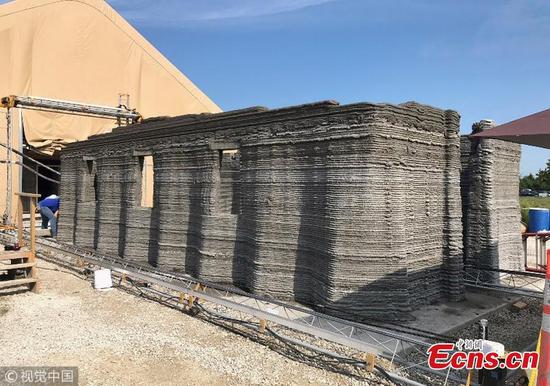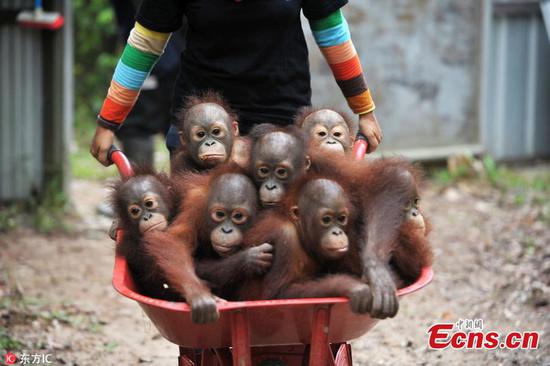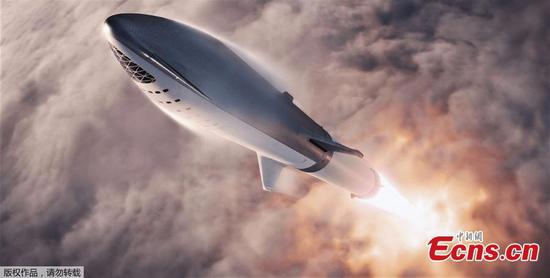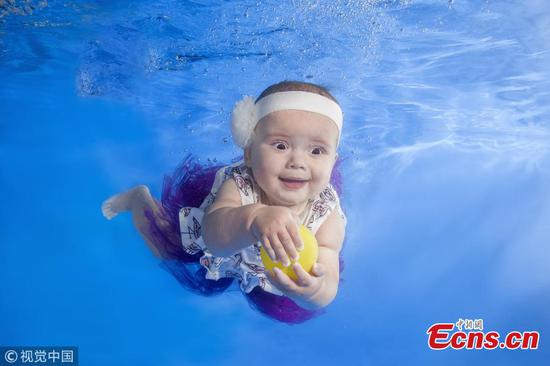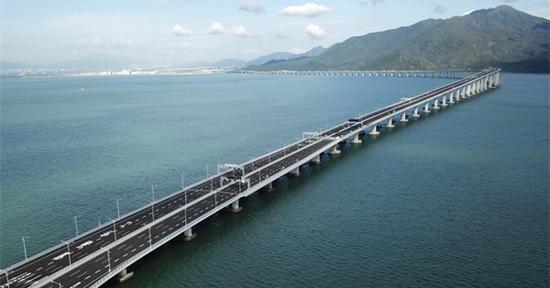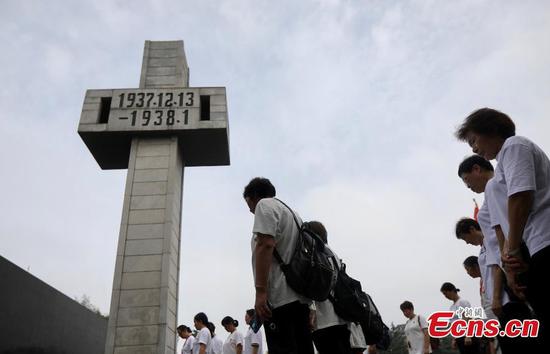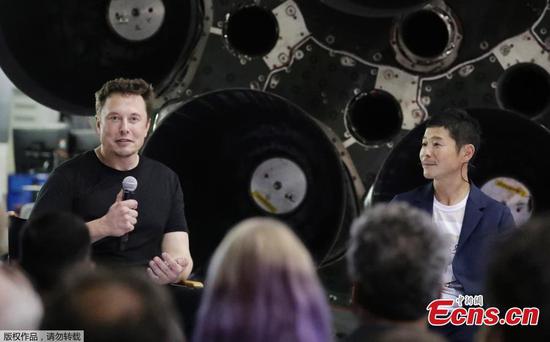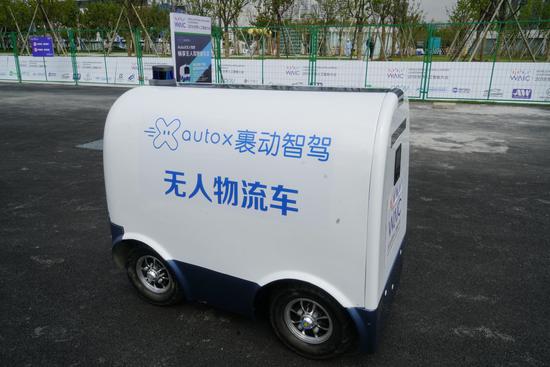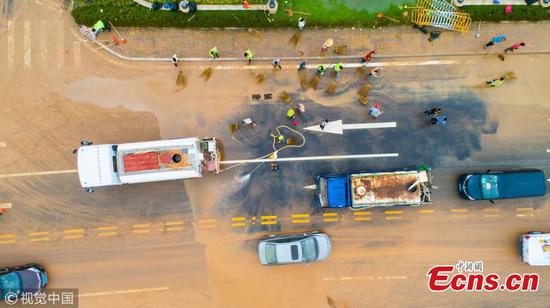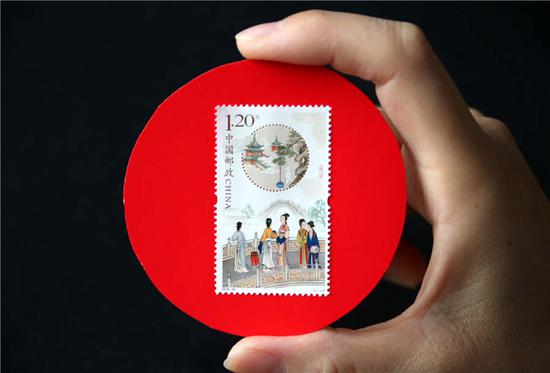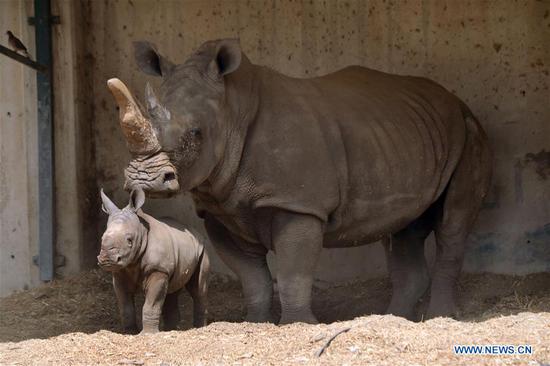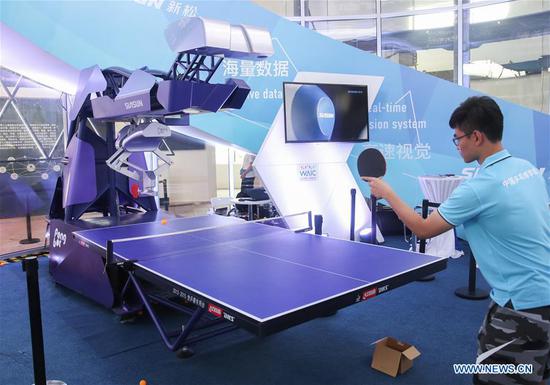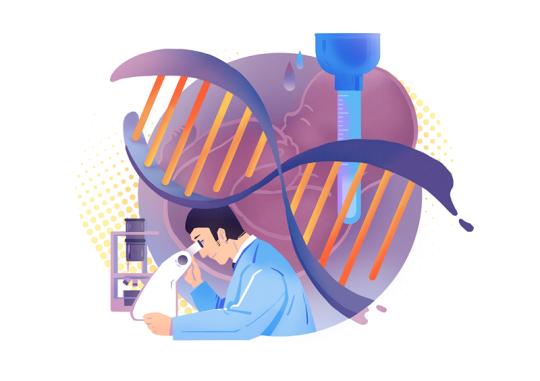
(Photo/China Daily)
However, diagnostic tests are unpopular, according to Zhu. "Amniocentesis is invasive, and many mothers worry about the possible risk it could trigger a miscarriage. In practice, the rate is usually less than 1 percent, and an experienced doctor could reduce it to less than 0.1 percent," she said.
"The problem is the poor training given to medical staff in some clinics, especially in third-or fourth-tier cities. Some doctors place too much trust in gene tests and don't provide mothers with the necessary information about the procedure."
In the US, ACOG requires an obstetrician or other healthcare professional, such as a genetic counselor, to discuss the results of screening tests with mothers and help them decide what to do next.
In 2016, the NHFPC - now superseded by the National Health Commission - released a guideline stating that women in China preparing to undergo a prenatal DNA test must be made aware of the possibility of false results, and required them to sign an informed consent. The guideline also emphasized that screening should not be regarded as foolproof.
"However, many people don't read the informed consent carefully enough or are unable to understand the potential for false results without the help of a medical professional," Zhu said.
"In China, we have no genetic counselors, and obstetricians in large hospitals see about 30 patients in a half-day session, so they don't have time to provide personalized consultations, which means some patients understand the facts better than others."
The PLA Navy General Hospital's prenatal center screens about 1,000 NIPT cases a year. Zhu said many patients who attend have already had the test at small clinics in third-or fourth-tier cities but need a repeat because some clinics employ unreliable gene testing companies that don't give patients a detailed report on paper, but simply send the result via text message.
Cost is crucial
Yu Jun, former deputy head of the Beijing Institute of Genomics at the Chinese Academy of Sciences, said cost is a crucial factor to obtaining accurate results.
"NIPT technology has been proven safe and useful. Most test providers in China use next-generation sequencing platforms and reagents made by companies overseas. In other words, the accuracy, cost and efficiency of NIPT is always reliant on the quality of the materials," Yu said.
From 2007 to 2013, the market value of global gene services soared from $8 million to $4.5 billion, according to a report by BCC Research, a technology market researcher. The figure is predicted to reach $11.7 billion by the end of the year.
In the past decade, the average cost of a gene test has fallen dramatically as a result of the popularity of the technology and the rapidly growing market, according to Yu. An NIPT service costs about 2,500 yuan - 10 times more than a conventional blood test - but it is not covered by State medical insurance
"China is one of the world's biggest gene testing markets. Last year, only about 20 percent of the country's 20 million pregnant women had NIPT, leaving great potential for future growth," Yu said.
"At the same time, many small companies have tried to swell profits by squeezing costs and conducting tests on samples that didn't meet standards or by reducing the amount of DNA being tested."
He believes gene technology has prompted significant improvements in the screening for genetic diseases, cancer diagnosis and drug target discovery.
"However, healthy market growth should be guaranteed by strong industry policies, strict laws and regulations, patient-friendly services and heightened public awareness. Those factors would help gene testing to provide a major contribution to people's health," he said.
















